PhysicsProgram
School of Science

Program Overview
 AWARD
AWARD
B.Sc. in Physics
 DURATION
DURATION
4Y
 SCHOOL(S)
SCHOOL(S)
School of Science
 Focus of Study
Focus of Study
Superconductivity; Spintronics; Solid state physics; Nonequilibrium physics; Fusion and plasma physics; Elementary particle physics; Quantum gravity; Hadron physics; Astronomy; Astrophysics; Cosmology; Functional materials for recovering waste energy; and Biophysics
Physics Program
Program Introduction
The Nagoya University G30 Physics Program, offered by the Department of Physics in the School of Science, is a four-year undergraduate degree program taught entirely in English and designed specifically for international students. With small class sizes and a high staff-to-student ratio, the program provides a rigorous and specialized education aimed at developing both scientific ability and creativity. Admission is highly competitive, reflecting the program’s high academic standards. Notably, Nagoya University has produced six Nobel Prize winners in the past 20 years, including four laureates in physics, demonstrating its global reputation for excellence in the field. Below, we introduce the distinctive features and opportunities offered by the G30 Physics Program.
Course Highlights
The Physics Program offers a broad and dynamic curriculum, covering a wide range of topics such as theoretical particle physics, condensed matter physics, astrophysics, cosmology, computational physics, plasma physics (including fusion research), and biophysics. Courses are intellectually demanding and emphasize abstract thinking, problem-solving, and the resilience required to tackle complex scientific challenges. Success in the program requires a deep commitment to physics and a strong foundation in mathematical methods.
In addition to theoretical study, the program boasts state-of-the-art experimental laboratories, seeking students who are not only able to understand the theory but also possess the practical creativity to test ideas and challenge existing paradigms. Classes are small (typically 5–15 students), ensuring close interaction with faculty. Tutorials are conducted by professors who are active researchers, particularly in theoretical physics. Students with a passion for pushing the boundaries of scientific knowledge will find this program especially rewarding. While many students pursue cutting-edge research after graduation, others go on to build successful careers in industry, where the analytical and problem-solving skills developed during the program are highly valued. Regardless of where your journey takes you, the G30 Physics Program provides a strong foundation for a future shaped by curiosity, innovation, and critical thinking.
Why Nagoya University’s G30 Physics?
- Excellent research labs working at the cutting edge of physics, providing ample opportunities for research.
- Small-sized classes (5–15 students) enable closer communication with professors.
- The Academic Ranking of World Universities by Subject (2023) ranks Physics at Nagoya University 35th in the world.
Curriculum
1styear
Japanese Language, Liberal Arts & Basic Courses
Take foundational courses to ease into life at Nagoya University:
- Calculus I/II
- Fundamentals of Physics I/II/III
- Fundamental Courses in Natural Sciences
- Linear Algebra I/II
- Fundamentals of Physics Tutorial 1a/1b
2ndyear
Basic Specialized Courses
Start building your physics foundation by taking basic courses:
- Mathematical Physics I/II + Tutorial
- Physics Seminar
- Electricity and Magnetism
- Statistical Physics I (Thermodynamics)
- Physics Tutorial 2a/2b/2c
- Physics Tutorial 1a/1b
- Quantum Mechanics I
- Analytical Mechanics I/II
3rdyear
Specialized Courses & Laboratories
Start deciding on your specialization through specialized elective courses:
CORE COURSES:
- Quantum Mechanics II/III
- Statistical Physics II/III
- Condensed Matter Physics I/II
- * Physics Tutorial 3a/3b/4a/4b
- * Physics Seminar
- * Specialized Elective Courses
- * Physics Laboratory I/II
4thyear
Research and Thesis
Complete your research on your chosen specialization/field:
- Graduation Research - Theoretical Studies
- Graduation Research - Experiments
* Note: This curriculum outline serves to show a snapshot of what the program has to offer and does not list all graduation requirements. Please refer to the program’s Graduation Requirements found on the admissions website.
Related Links
How to Apply
The Physics Program offers two application rounds: the first in November–December and the second in January. Please click on the “Apply Here” icon above to view the full application instructions.
Below, you will find a selection of recommended standardized test scores for students interested in applying to the Nagoya University G30 Physics Program.
Detailed eligibility criteria and application requirements are provided in the Application Guidelines available on the Apply Here page.
Recommended Scores
- SAT total score approx.1400 and above
- SAT Math socre around 720 and above
- IB 38/42 and above: MathHL/PhyHL 6 or 7
- A-Level: AAA and above
Student Voice
4th Year Indonesia
What sparked your interest in the G30 Physics program?
I was interested in the G30 Physics program because I knew that there were four Nobel Laureates in Physics from Nagoya University. In particular, I was really interested in Makoto Kobayashi and Toshihide Maskawa’s research. Currently, I am researching quantum gravity which is a relatively similar research field as Kobayashi-sensei and Maskawa-sensei. That said, I want to pursue my further studies in the United States as the country is currently the epicenter of Quantum Gravity research.

What courses did you take in high school?
I didn’t take any international curriculum back in my country but mainly I took all the sciences subject such as:
- Mathematics
- Physics
- Chemistry
- Biology


Program Video
-
* Note: Since May 2019, the Fundamental and Applies Physics Program has been merged and changed to become the Physics Program, located in School of Science.
Career Path
Your Future Career
Nearly all of our graduates continue to graduate school, either at Nagoya University or leading universities overseas. After completing a Master’s degree, most pursue a PhD in Physics. If pursuing a career in academia is not your fit, don’t worry! In Physics, you will learn transferable skills applicable to a broad range of “real world” applications. This allows graduates to find jobs in a broad range of industries. Amidst today’s rapid pace of technological advancement, with a higher degree in physics, the world is your oyster.
Examples of Career Paths
Academia
- Nagoya University
- University of Tokyo
- Duke University
- ETH Zurich
- University of Bristol
Employment
- Amazon Web Services
- SBI Holdings


